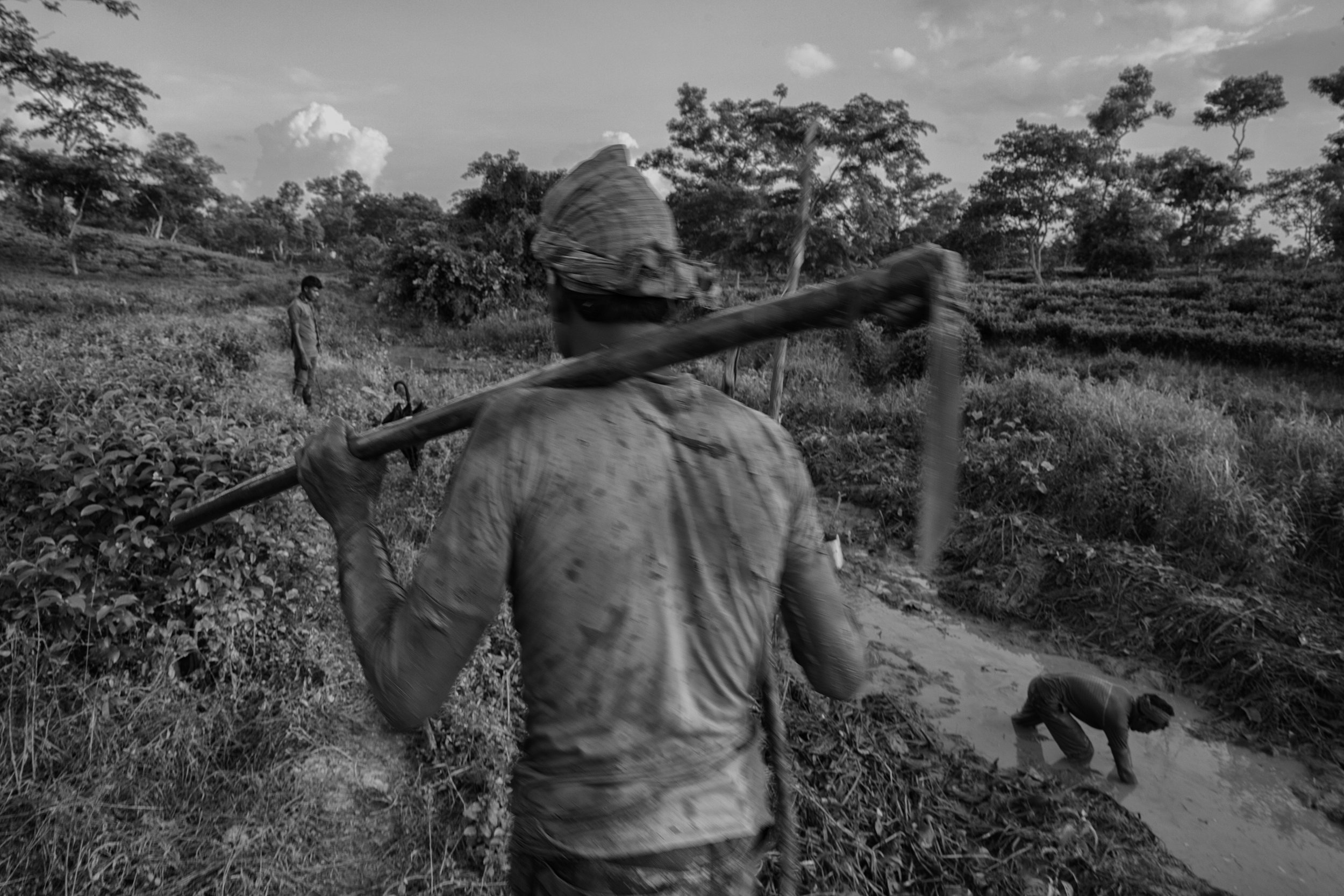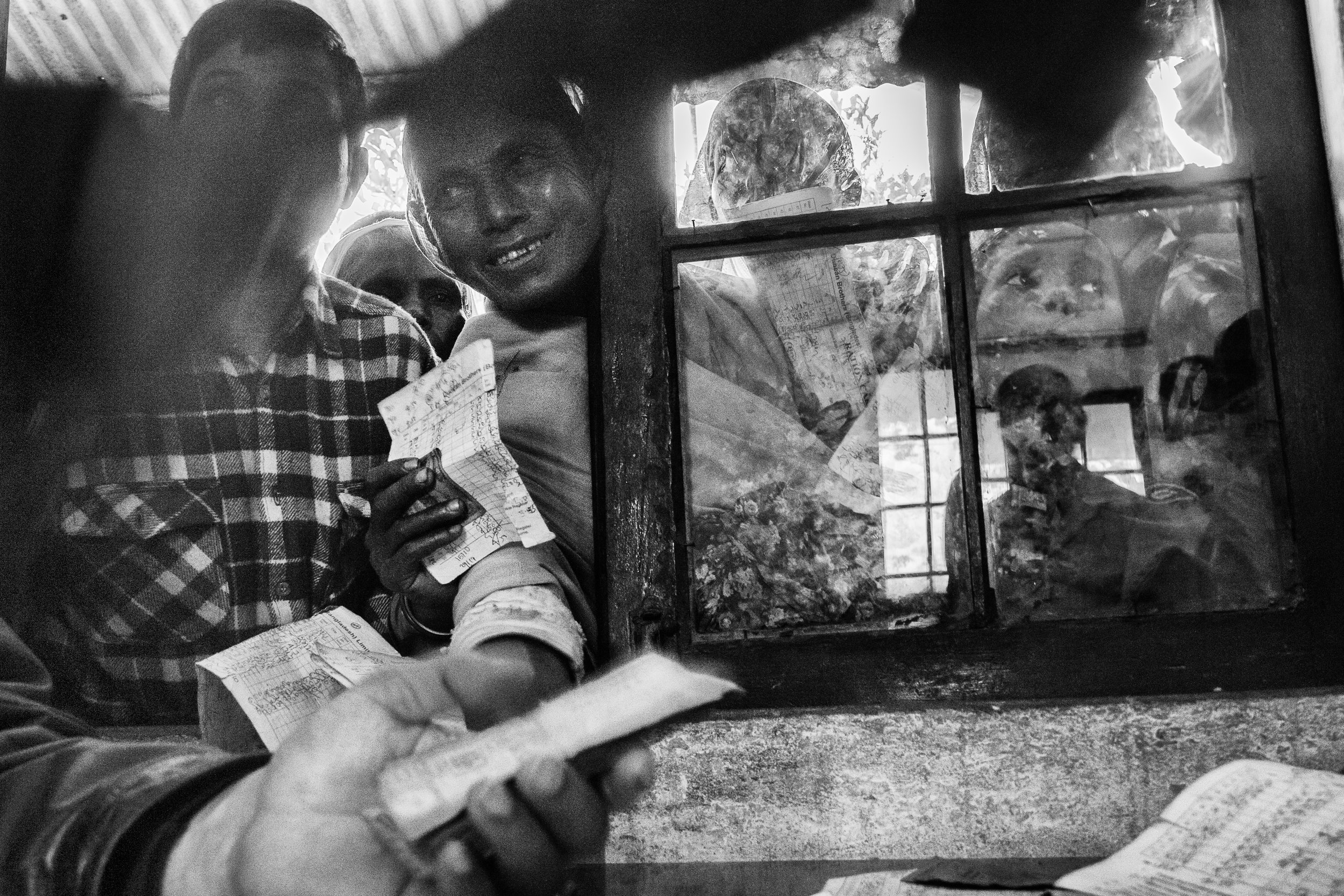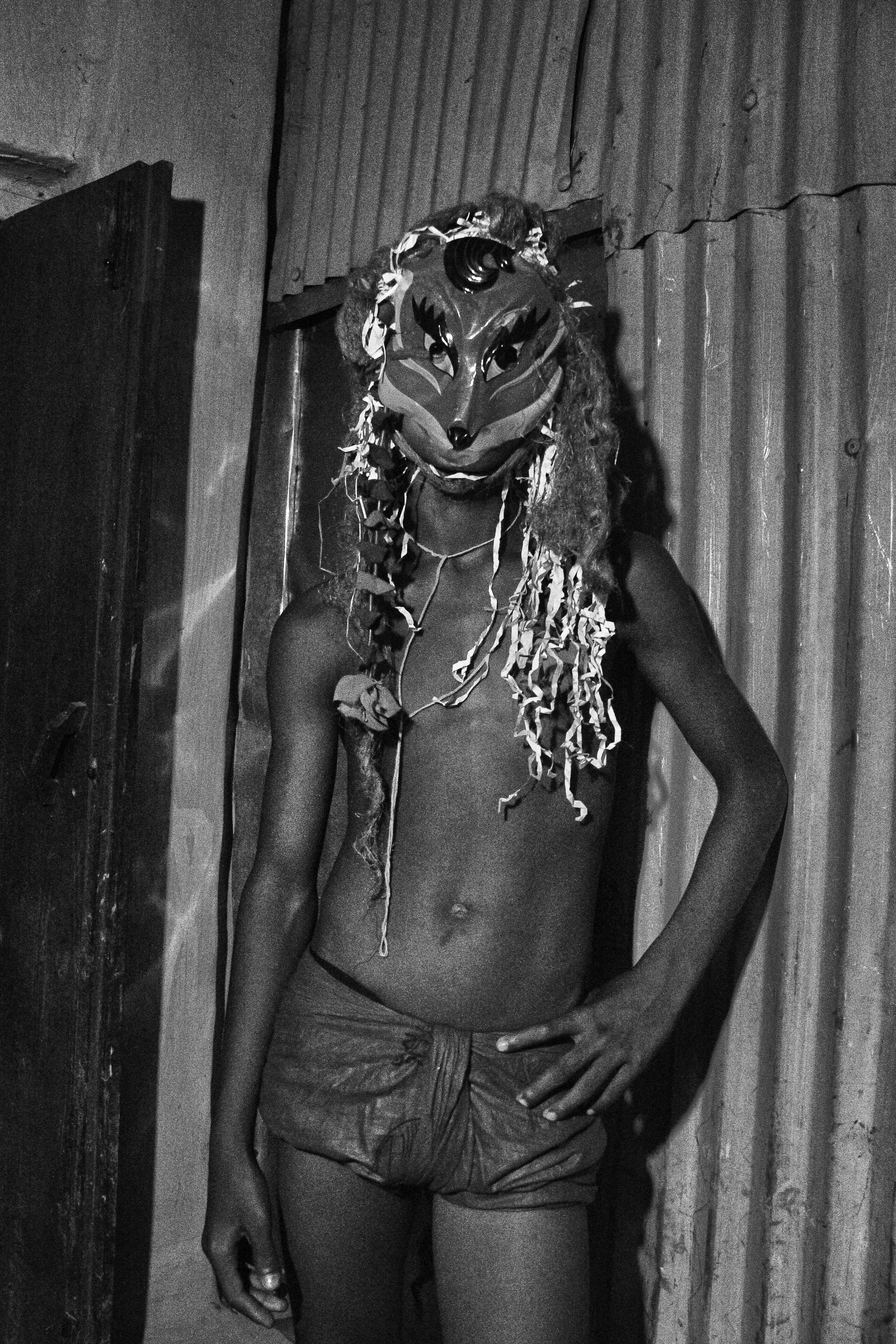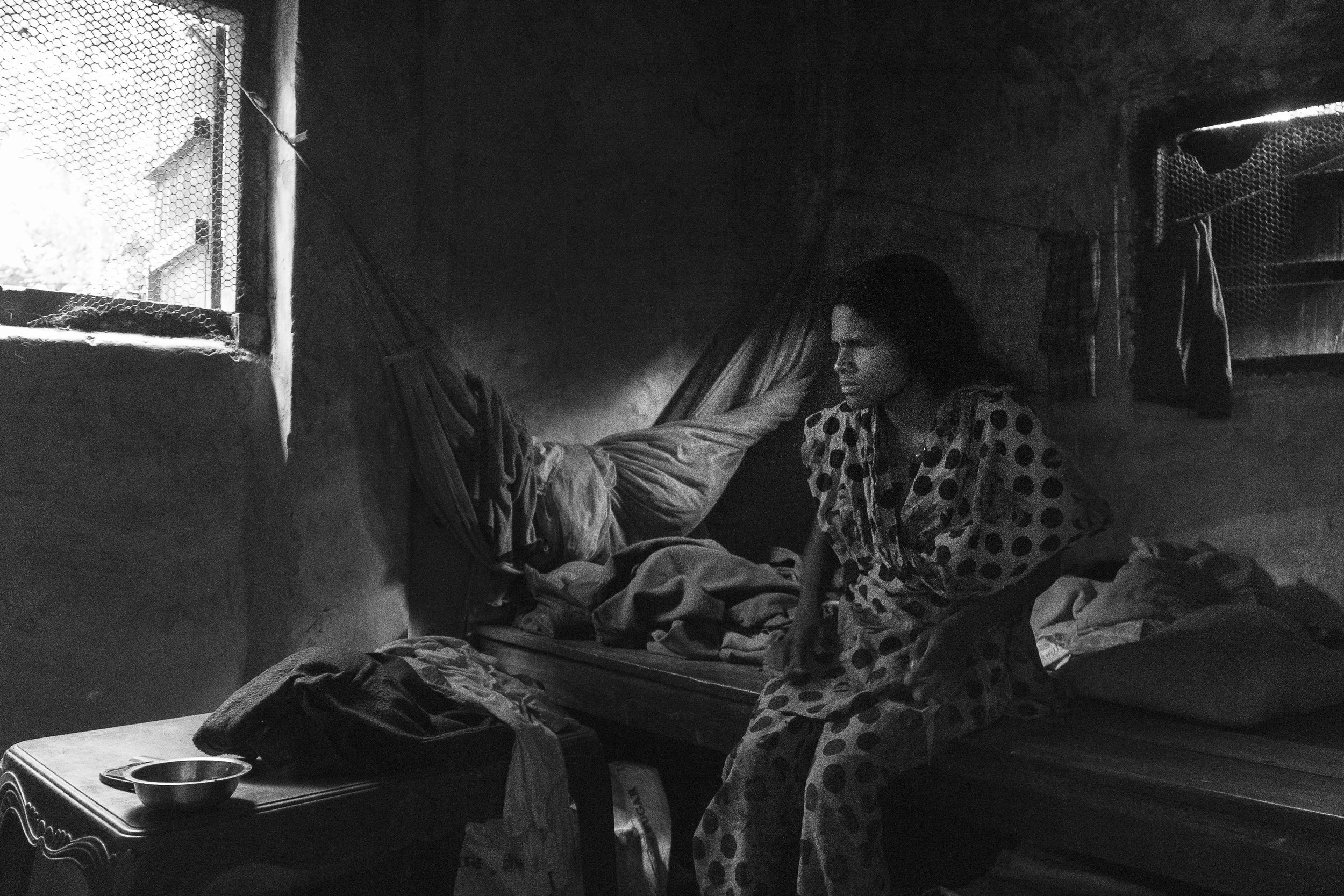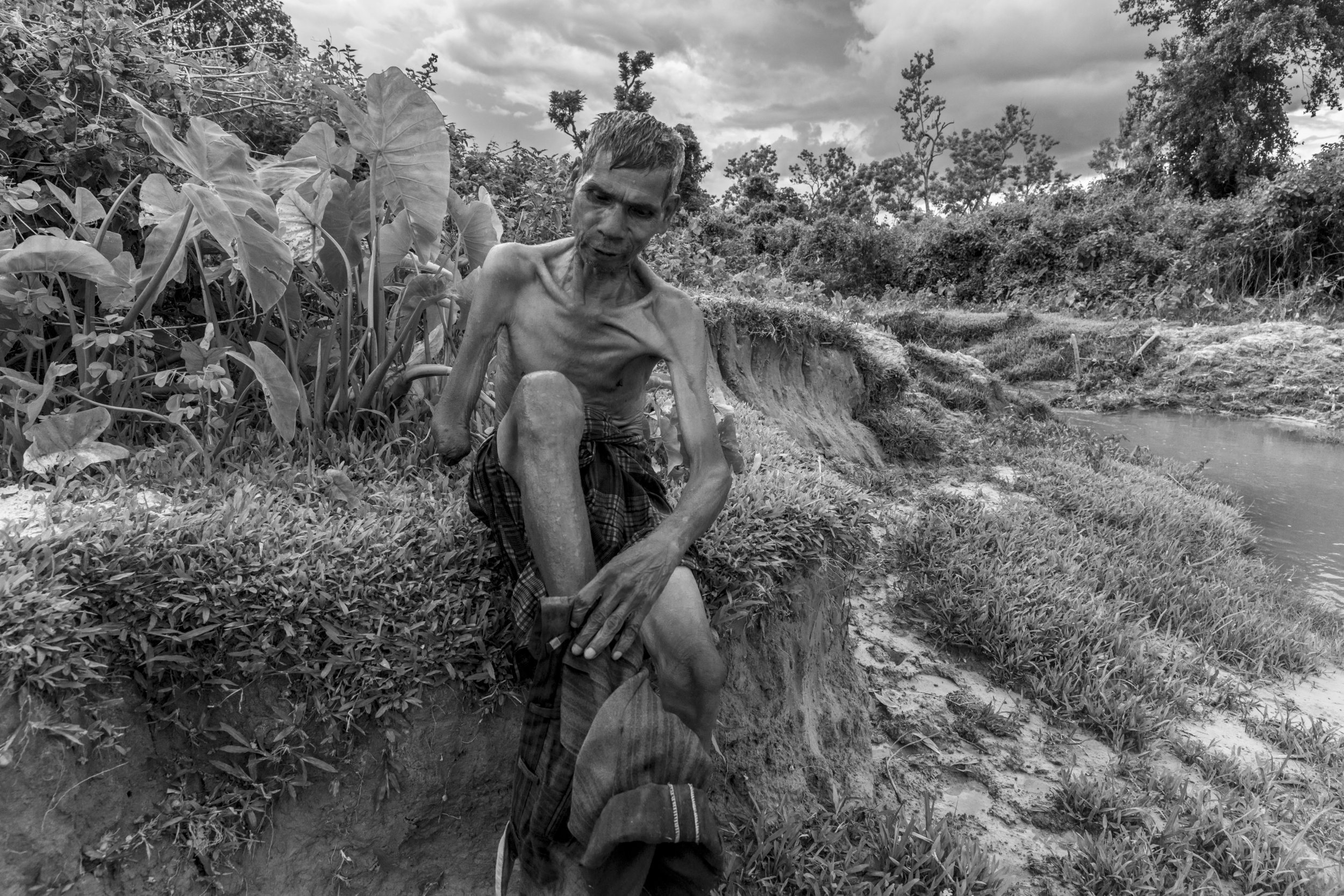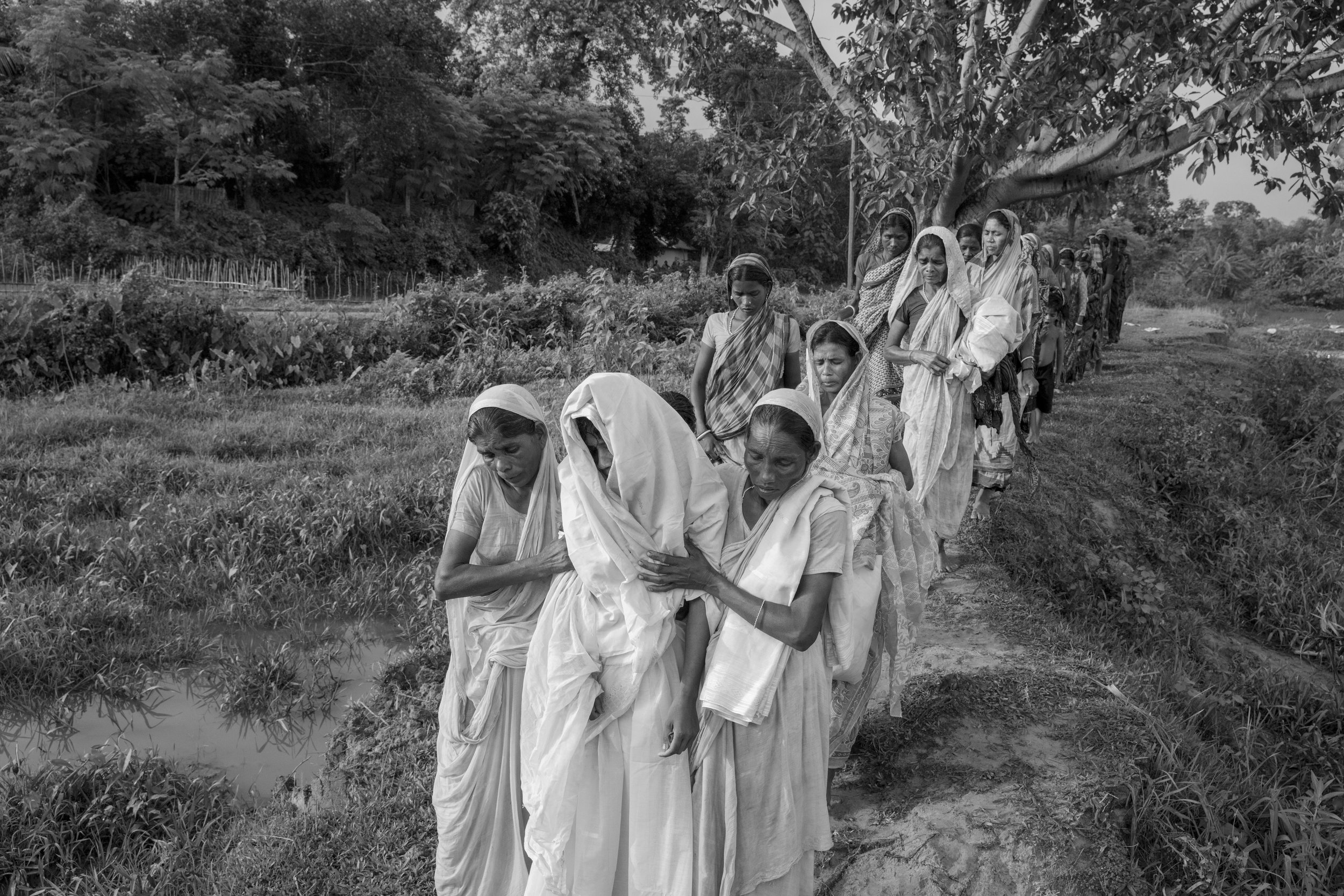“It was an intense residency! It was all about work, with lovely and helpful people and Anais and Marga were super cool hosts. It is really nice and sometimes overwhelming to see people investing their time in understanding my story and also giving valuable suggestions. I can without a doubt say that I have learned a lot from the residency with Docking Station. I am also very grateful to Docking Station and Webster University Leiden Campus for organizing a small research show of my project during my stay. ”
DOCKER #25
Faiham Ebna Sharif
Cha Chakra is a long-term documentary photography research project on tea. Faiham Ebna Sharif started the project in 2015, while he was visiting a tea garden in the north-eastern corner of Bangladesh to cover a workers’ protest. During the visit, Faiham stayed with a worker family for a few days in the labour colony. He was moved by experiencing their ‘simple’ life, which is closely attached to their decaying cultural and religious tradition, but also saw the high price that the workers pay for our cup of tea.
Tea, apparently known as a Chinese drink, came to Bangladesh through colonial trade in the 1840s. The workers were brought to the region through deception by the tea plantation owners from different parts of undivided India. In Bangladesh, the community has grown to a million people and contains almost 80 different ethnic communities. 10% of the workers have a permanent job in the plantation, receiving just over a dollar a day, and 70% of the workers are women. Poor access to education, healthcare, and sanitation systems; a lack of safety at work; gender discrimination and, most of all, extremely low wages: all these forms of exploitation complement yet another plantation economy with the use of an indentured labour force who produce the most consumed drink in the world.
Cha Chakra aims to give light to the untold stories of these workers. It is not a story of exploitation only; rather, it intends to explore the inherent power of resistance that the workers show through their agrarian culture. Cha Chakra is about the relationship that a plant has with its caregivers and consumers. The project also aims to inform people about the phenomenon, which hardly gets any attention in the mainstream or independent media, and to raise awareness about it.
The project was supported by Magnum Foundation, the Documentary Project Fund and Prince Claus Fund.
Who? Faiham Ebna Sharif
From Bangladesh
Docking Februari 11 - March 7 2019
Working on Cha Chakra: Tea Tales of Bangladesh
About Ethnographic documentary on tea plantation and workers
Faiham Ebna Sharif is a freelance researcher and photographer. He finished his honors and master’s in international Relations from the University of Dhaka, Bangladesh. Then he took up a diploma on Photography in Counter Foto, a photography school in Bangladesh where he is an adjunct faculty now. Faiham started his journalism career as a reporter in a local Television Channel. He had worked with local electronic medias and contributes for national and international outlets. He has experience of working in feature films, documentaries. His work had been exhibited in Bangladesh, USA and selected for Addis Photo Fest to be held in December 2018.
He received magnum foundation fund and the documentary project fund for his long-term project on tea. Faiham was also a fellow of Dutch Visitors program on Human Rights and a visiting artist at Harvard University.
ambassador
BAS VROEGE
Founder/Director of Paradox and Lecturer at the Editorial and Curatorial Training Programme of the Master in Film and Photographic Studies, Leiden University.
I met Faiham Ebna Sharif for the first time when he came to the Netherlands as a Fellow of the Dutch Visitors Programme on Human Rights, organized by the Ministry of Foreign Affairs in 2016. He then showed me an early version of Sorrows of Tea Workers,his story on tea workers in Bangladesh. It was (and is, in its extended current condition) a remarkable in-depth study of the history of tea plantations during and after colonial times, disclosing the living and working conditions of tea plantation workers in Bangladesh, and alerting his audience to the violations of human rights. The project makes clear how we, as western consumers, continue to be responsible for this situation.
Since then his work has both visually and conceptually matured thanks to the support of, among others, the Magnum Foundation and the South Asia Institute at Harvard University. In order to do justice to the cause he is committed to, I think he could benefit from meeting with designers, web developers, filmmakers and producers who have experience in addressing complex social issues with a critical audience in a contemporary way during his stay at Docking Station. It would allow him to rethink the ways his content may reach people worldwide.


